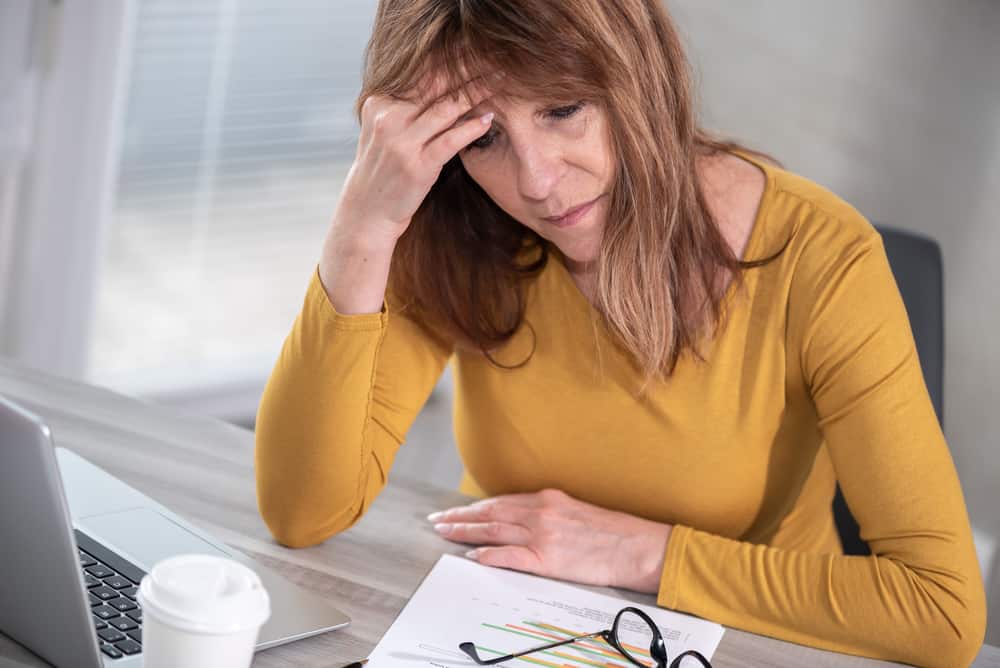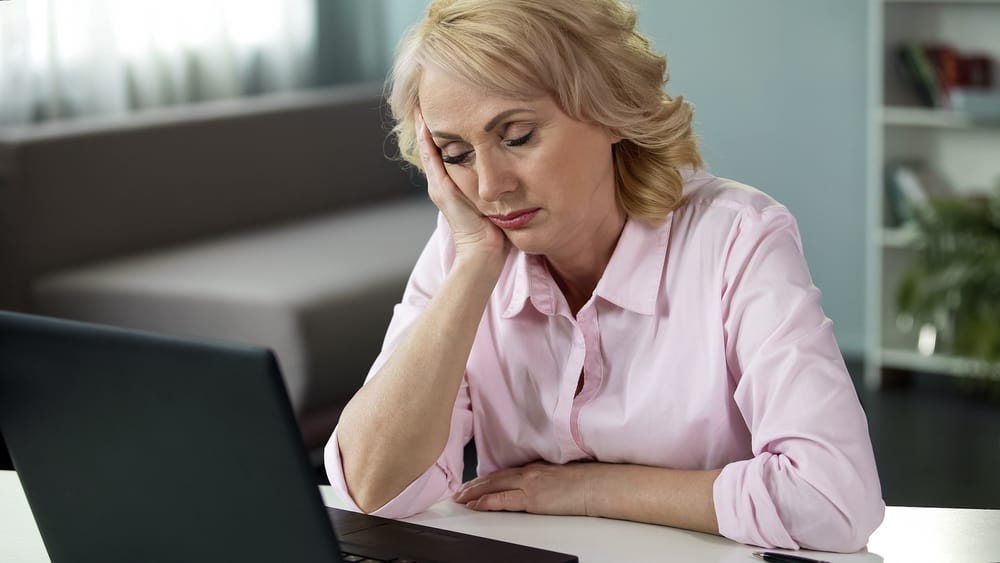Why does stress make you tired?

Whether it’s a one-off stressful event or an ongoing situation, stress can make anyone emotionally exhausted and overwhelmed. It affects your ability to think clearly and makes it hard for you to concentrate on anything other than how stressed out you are feeling right now.
As women in midlife, we often have a lot on our plates, what with work, family and fluctuating hormones, all of which add tour our stress levels.
Why do we feel so stressed and tired all the time?
We all experience stress, it’s a natural part of life and a healthy reaction to potential threats. Back when we lived in caves and had to worry about being attacked by predators or perishing in extreme weather, sensing such dangers triggered the famous fight, flight or freeze response in our brains. This threat detection and response mechanism is designed to help us survive.
You can see this in action if you observe creatures in the wild. I particularly enjoy watching the lizards in my garden. They might be merrily scuttling along a wall but as soon as they detect my presence, they freeze, only scurrying off once they are confident that it’s safe to dart for the safety of a nearby rock.
Most of us are no longer in mortal danger on a regular basis but our typically over-busy lives mean that we are constantly surrounded by stressors such as traffic jams, running late, family dramas, looming deadlines, email and social media notifications and media messages that make us feel inadequate in some way.
I’m exhausted just thinking about it, to be honest!
Unfortunately for modern humans, our brains can’t differentiate the difference in threat level between a ping from our mobile phone and the roar of a wild beast that fancies us for lunch. We go into high alert mode at the sound of a siren and that takes its toll on our energy levels.
Stress is also caused by feelings of frustration, group pressure, isolation, environmental stimuli and having to think on our feet. These factors combine with our own personal characteristics like personality type, age, gender, medical conditions and physical health to create unique patterns of stress responses.
For women in midlife experiencing perimenopausal or menopausal symptoms, our hormones are all over the shop and this disrupts sleep even more. Then we get stressed and anxious about not sleeping, which only exacerbates the situation.

What exactly happens inside our brain during stress?
The part of our brains responsible for keeping us safe is called the limbic system, which contains the amygdala, hypothalamus and hippocampus. Together, they process emotions like fear, anger and aggression and play a significant role in regulating our body’s responses to external stimuli.
In a stress situation, the amygdala sends signals to the hypothalamus which then activates hormones called cortisol and adrenaline. These chemicals work together to prepare the body for either fighting or fleeing.
How do our bodies react to stress?
Adrenaline helps speed up the heartbeat, dilates our pupils so that we have better peripheral vision to see approaching tigers, speeds up breathing and increases muscle strength so that we can run or defend ourselves.
Cortisol boosts metabolism and suppresses our appetite, directing our energy to the parts of the body needed to keep us out of danger rather than on an even keel.
When we’re under too much stress in our daily lives, both of these hormones ramp up their activity.
Why does stress make us so tired?
Unfortunately, this means we get less sleep because the adrenalin keeps us awake and the cortisol stops us from sleeping well. For the body to fully recharge and repair tissues, we need deeper periods of sleep that are elusive when stress is interfering.

When you suffer from chronic stress, the combination of increased wakefulness and poor sleep leads to fatigue, irritability, lack of concentration and poor decision-making because you’re literally too tired to think straight.
Why it’s essential to manage your stress levels before it’s too late
If you let your stress levels run amok for too long, you could eventually find yourself in burnout. I’ve been there and it’s not fun so I’d avoid it if at all possible.
Burnout occurs when someone feels mentally and physically drained due to prolonged exposure to excessive amounts of stress. It’s characterised by feelings of exhaustion, loss of motivation, low self-esteem and hopelessness, among other things.
How to reduce the impact of stress and boost your energy levels
If you recognise that you’re feeling stressed out much of the time, don’t panic. There are plenty of ways to reduce the impact of long-term stress without resorting to drugs like antidepressants.
Here are 5 stress-busting activities to get you started:
1. Nature as a stress-beater

Spending time connecting with nature, such as walking along a riverbank or taking an afternoon stroll through a park, noticing the wildlife and plants around you, can help relax your mind and restore your sense of wellbeing.
This is scientifically proven; numerous studies have shown that being with nature activates our parasympathetic nervous system, which is the one that tells out bodies that all is well and that it’s safe to relax so stop pumping out the adrenaline and cortisol.
As an added incentive for getting outside, studies also show that spending time outside reduces blood pressure, heart rate and improves cognitive function, especially after long periods spent indoors where people tend to be more sedentary.
2. Meditate to reduce stress
Another way to release tension is meditation.
I know that it’s not always easy to turn your mind away from all the worries and thoughts that are buzzing away but there are different tools and techniques that work for different people.
Experiment with ways of meditating to find a method that suits you.
3. Prioritise your sleep
It can be challenging to get sufficient quality sleep when you’re suffering from the symptoms of stress but there are things you can do to improve your chances of getting a good night’s rest.
Avoiding electronic devices 2 hours before bedtime and keeping them out of the bedroom is a good starting point, as is going to bed and getting up at regular times each day.
Alcohol doesn’t help so cut back or cut it out if that’s part of the problem. I stopped drinking alcohol in January 2021 and it’s made a huge difference to my sleep patterns, as well as other areas of my life.
4. Exercise to energise
It might sound counter-intuitive to suggest that you exercise when you’re already on your knees but movement really does make a difference.
If you’re not used to regular exercise, start with small, doable activities like daily short walks and build up to more energetic passtimes.
5. Take up an absorbing hobby
If you can find something that you enjoy doing so much that you get into what’s called a flow state, you won’t be worrying about your other troubles.
For some people this can be something like crochet or painting, for others, it’s writing, running, local history, flower arranging… the possibilities are endless.
As an added bonus, you might make new friends.







